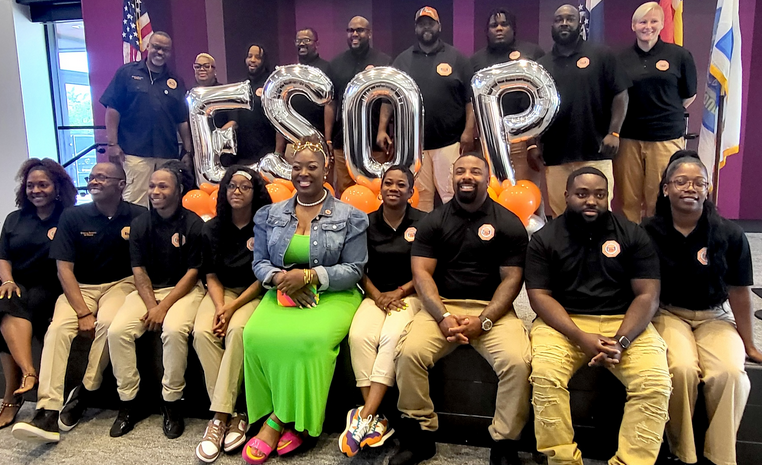Is the Federal Communications Commission (FCC) about to give media mogul, Rupert Murdoch, an early Christmas present by providing him more power to monopolize media markets—by changing longstanding rules regarding media ownership?
According to Free Press—a media watchdog group that promotes diversity and plurality in journalism—that may well happen in “the next two weeks.”
If media is supposed to represent the multiplicity of American society, why would the FCC promote media monopolization, especially, by morally-challenged moguls like Rupert Murdoch?
Josh Stearns, of Free Press, reports that “The Federal Communications Commission is charging ahead with its plan to let Rupert Murdoch gobble up more media outlets. And we’ve just learned that the FCC may try to hold a secret vote to allow more media consolidation in the U.S. — possibly within the next two weeks.”
Mr. Murdoch the Australian-born founder, chairman and CEO of the global media conglomerate News Corporation—the second largest media company—reportedly, wants to purchase the Los Angeles Times and the Chicago Tribune.
Mr. Murdoch, who has media holdings on several continents, is currently embroiled in a phone hacking scandal surrounding his now defunct English newspaper News of The World which closed its doors in 2011.
The scandal led to the arrests of several News of The World reporters and editors including: Neville Thurlbeck, James Weatherup, James Desborough, Clive Goodman, Neil Wallis, Stuart Kuttner, Greg Miskiw, Ian Edmondson, Andy Coulson and former News International CEO Rebekah Brooks. News International, which operates in the United Kingdom, is a subsidiary of News Corporation.
Reportedly, FCC Chairman Julius Genachowski is pushing a proposal to further undo media ownership rules curbing media monopolization. Allegedly, Mr. Genachowski is pushing FCC board members to adopt this proposition via a secret vote in an attempt at bypassing public hearings on the matter. However, Mr. Genachowski has stated his intent is to “streamline and modernize media ownership rules, including eliminating outdated prohibitions on newspaper-radio and TV-radio cross-ownership.”
Mr. Stearns cautions “If the FCC guts its ownership rules, nothing will stop Murdoch and other media giants from getting even more control over your news” and that if that occurs media “ownership levels for women and people of color would plunge even further.”
And Free Press has pointed out the changes Mr. Genachowski is championing resembles “those proposed by then-FCC Chairman Kevin Martin in 2007. Martin’s rules were later overturned by the U.S. Court of Appeals for the Third Circuit. In its decision, the court directed the FCC to study the impact of its rule changes on ownership diversity.”
Now, ironically, while many people complain about journalistic “objectivity,” American media and American journalism has always suffered because of a lack of diversity that is contrary to all the hallowed words about following democratic principles. The truth is America’s corporate culture promotes monopolization and homogenization. If so-called “mainstream” media operates this way, why should we expect anything else from most of the rest of America, given media’s stranglehold on the perception of the masses?
This attempt to give Mr. Murdoch an even bigger slice of the media pie is unconscionable. For years, many people have complained about the wretched situation of American media—a condition directly related to its segregate state and one-sided ownership. We know media have a diversity problem. If politicians are willing to twist laws, so that media moguls can purchase more newspapers, radio and television stations how does that alleviate this problem?
Here we should reflect on what was said in the 1968 Kerner Commission Report—a report that was commissioned by President Lyndon B. Johnson to analyze the causes that led to the national riots which plagued America from 1964 to 1967. We all remember that most famous quotation from the report which said America was a nation “moving toward two societies, one black, one white—separate and unequal.” Clearly that prophetic phrasing is true 44 years later.
But that important report also singled out the media’s role in this tragic reality. The commission found American media guilty of distorting the riots when they said “We have found a significant imbalance between what actually happened in our cities and what the newspaper, radio and television coverage of the riots told us happened.”
The commission also pointed out that “Lacking other sources of information, we formed our original impressions and beliefs from what we saw on television, heard on the radio, and read in newspapers and magazines. We are deeply concerned that millions of other Americans, who must rely on the mass media, likewise formed incorrect impressions and judgments about what went on in many American cities last summer.” And there was this other prescient point about the lack of minority representation in media “The journalistic profession has been shockingly backward in seeking out, hiring, training, and promoting Negroes.”
These findings of the Kerner Commission are still relevant today because America’s establishment media is still “shockingly backward.” All these years later, are they really that much better? Sure, there are a few more minority faces but isn’t it quite clear corporate newsrooms are still bloated bastions of white male opinion? Worse of all, the tendency seems to be to choose minorities who represent and reflect only their outlooks and perceptions.
Where are the divergent voices in these newsrooms that would present a more accurate picture of America? Does America realize how much insight we lose because of the undemocratic demographics inside these institutions? For example, ask yourself why don’t we see and hear more scholarly voices on broadcast media like distinguished MIT Professor Noam Chomsky?
If the FCC changes the rules to benefit the likes of Mr. Murdoch, how does that alter the warped worldview of corporate media? Presently, if it wasn’t for the Internet many minority and progressive voices would have no outlet at all to express themselves. Some complain about the vastness of the Internet but this medium has fostered more democratic variety in media than we will ever see in today’s establishment media. Consequently, we should also be aware of the net neutrality issue—since, avaricious corporations want to meddle with the Internet to promote their greedy bottom line.
Americans must let the FCC and Capitol Hill know that we will not stand-by while they engage in backroom deals to further monopolize media. We must say no to net neutrality—and no to the FCC’s commissioner’s plan to help Rupert Murdoch cannibalize more of the corporate media pie.





